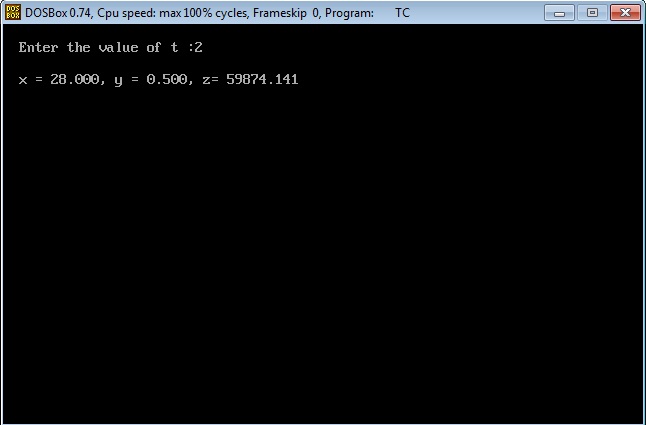
Many pioneers of computer science did not probably imagine how far computer programming would arrive. However, it is to a large extent thanks to their contributions that computer programming and automation has gone a long way over the past centuries. Here is a list of some of the pioneers of computer science from the 18th to the 21st century.
Joseph Marie Jacquard
Joseph Marie Jacquard (1752 – 1834), French weaver and merchant, played an important role in the development of the earliest programmable loom: the “Jacquard loom” or “Jacquard machine”. The Jacquard machine significantly contributed to the development of other programmable machines. The use of replaceable punched cards to control a sequence of operations is considered an important step in the history of computing hardware. It was indeed an inspiration for the next pioneer in the list.
Charles Babbage
Charles Babbage (1791 – 1871), English inventor and mathematician, conceived the first automatic digital computer and developed the Difference Engine and the Analytical Engine — although both engines were never completed. Babbage’s Analytical Engine stands out particularly because it planned to include most of the basic elements of computers as we know them nowadays.
George Boole
George Boole (1815 – 1864), English mathematician, philosopher and logician, set the foundation for the branch of algebra that would be later called Boolean algebra, fundamental in the development of digital electronics and used in virtually all programming languages, in his books. In fact, he particularly stands out for his book on algebraic logic: An Investigation of the Laws of Thought on Which are Founded the Mathematical Theories of Logic and Probabilities.
Ada Lovelace
Ada Lovelace (1815 – 1852), English mathematician, translator and writer, is considered the first computer programmer. She recognised the potential of Babbage’s developments and created the first published program intended for Babbage’s Analytical Engine prototype. Moreover, it is worth mentioning that the early programming language Ada, originally designed for embedded and real-time systems, was named after her.
Émile Baudot
Jean-Maurice-Émile Baudot (1845 – 1903), French telegraph engineer, invented the first means of digital communication known as the Baudot code — an early character encoding for telegraphy. It consisted of a multiplexed telegraph system that used Baudot’s telegraph code and allowed multiple transmissions over a single line. Besides, it is worth mentioning that the baud (Bd) unit was named after him.
Leonardo Torres y Quevedo
Leonardo Torres y Quevedo (1852 – 1936), Spanish civil engineer and mathematician, invented one of the first chess automatons, known as “El Ajedrecista” (“The Chess player” in English), capable of playing without human guidance. He also invented an analytical machine including a small memory built with electromagnets and an electromechanical arithmometer, to commemorate the arithmometer’s 100th anniversary.
Herman Hollerith
Herman Hollerith (1860 – 1929), German-American statistician, inventor and businessman, developed an electromechanical tabulating machine to assist in summarizing information stored in punched cards. This invention marks the beginning of the era of mechanized binary code and semi-automatic data processing systems. It would be the foundation for other business applications such as accounting and inventory control.
John Von Neumann
John Von Neumann (1903 – 1957), Hungarian-American mathematician, physicist, computer scientist, engineer and polymath, made contributions to many fields from mathematics to computing and statistics. He was a pioneer in the application of operator theory to quantum mechanics in the development of functional analysis. Among the many papers he published, it is worth mentioning his unfinished manuscript, The Computer and the Brain, which was published as a book after his death.
Grace Hopper
Grace Hopper (1906 – 1992), North American mathematician, computer scientist and naval officer, is considered as the mother of computer programming. She was one of the first programmers of the electromechanical computer Hardvard Mark I, together with Richard Milton Bloch and Robert Campbell. She also participated in the invention of the electronic digital computer UNIVAC I, and in the development of the COBOL computer language.
Konrad Zuse
Konrad Zuse (1910 – 1995), German civil engineer, computer scientist, inventor and businessman, created the first programmable computer: the Turing-complete Z3. In fact, he is often considered as the inventor of the modern computer. He designed the first high-level programming language, Plankalkül, for engineering purposes.
Alan Turing
Alan Turing (1912 – 1954), English mathematician, computer scientist, logician, cryptanalyst, philosopher and theoretical biologist, had a great influence on the development of theoretical computer science. He is indeed considered the father of theoretical computer science and Artificial Intelligence (AI). He formalized the concepts of algorithm and computation with the Turing machine.
Maurice Vincent Wilkes
Maurice Vincent Wilkes (1913 – 2010), English computer scientist, designed and helped develop one of the earliest stored program computers, the EDSAC (Electronic Delay Storage Automatic Calculator). In 1950, the EDSAC was the first computer to be used to solve a problem in the field of biology — a differential equation relating to gene frequencies. Moreover, he invented the concept of microprogramming, which considerably simplified CPU development.
Creola Katherine Johnson
Creola Katherine Johnson (1918 – 2020), American mathematician, was one of the first African-American women to be a NASA scientist. Her calculations of orbital mechanics were critical to the success of the first U.S. crewed spaceflights, as well as to later ones. She stood out for mastering complex manual calculations. She contributed to diverse programs such as the Project Mercury, Project Apollo and the Space Shuttle program.
Joseph Weizenbaum
Joseph Weizenbaum (1923 – 2008), German-American computer scientist and professor, is considered one of the fathers of modern Artificial Intelligence. While working at General Electric, he contributed to the design and development of the first computer system dedicated to banking operations. He also contributed to the creation of the list processing computer programming language SLIP and the natural language understanding program ELIZA.
John Backus
John Backus (1924 – 2007), American computer scientist, led the team behind the development and implementation of FORTRAN, the first widely used high-level programming language. He also invented the Backus-Naur Form (BNF), a metasyntax notation for context-free grammars, often used to describe the syntax of computing languages. John Backus won the Turing Award in 1977, along with his colleague Dennis Ritchie.
Seymour Roger Cray
Seymour Roger Cray (1925 – 1996), American electrical engineer and supercomputer architect, was a pioneer in the supercomputing field. He is indeed credited with the creation of the supercomputing industry. He designed a series of computers that were the fastest in the world for decades. The IEEE Computer Society established an award after him to recognize innovative contributions to high performance computing systems.
Elizabeth Feinler
Elizabeth Feinler (born in 1931), North American information scientist, was a pioneer in the management of the ARPANET and the Defense Data Network (DDN), network information centers under contract to the Department of Defense of the US, and early predecessors to the Internet. Together with her group, she also participated in the development of an Internet protocol to access an online directory of people (WHOIS), among other developments.
Frances Elizabeth Allen
Frances Elizabeth Allen (1932 – 2020), American computer scientist, was a pioneer in the field of optimizing compilers, contributing with seminal work on fields such as compilation, program optimisation and parallelisation. She was the first woman to become an IBM Fellow in 1989, and the first one to win the Turing Award in 2006. Besides, she also won other awards such as the Ada Lovelace Award in 2002 and the Computer Pioneer Award in 2004.
Donald Ervin Knuth
Donald Ervin Knuth (born in 1938), American computer scientist and mathematician, is known as the father of the analysis of algorithms. He is the creator of the TeX typesetting system, the related font definition language (Metafont), the rendering system and the family of typefaces (Computer Modern). He won diverse awards, such as the Turing Award in 1974, the Kyoto Prize in 1996 and the BBVA Foundation Frontiers of Knowledge Award in 2010.
Barbara Liskov
Barbara Liskov (born in 1939), American computer scientist, has made pioneering contributions to programming languages and distributed computing. She introduced the principle of data abstraction, abstract data types and the Liskov substitution principle. Moreover, she has led significant projects such as the Venus operating system and the design and implementation of CLU programming language. She won the Turing Award in 2008.
Federico Faggin
Federico Faggin (born in 1941), Italian physicist, engineer, inventor and entrepreneur, is best known for leading the design of the first commercial microprocessor: the Intel 4004. While working at Fairchild Semiconductor, he also created the self-aligned metal-oxide-semiconductor (MOS) silicon-gate technology (SGT), enabling the manufacturing of MOS memory chips, CCD image sensors and the microprocessor.
Ken Thompson
Ken Thompson (born in 1943), North American computer scientist, designed and implemented the original UNIX operating system, while working at Bell Labs. He also invented the B programming language, direct predecessor to the C programming language; among other contributions. He has worked at Google since 2006 and he has contributed to the development of the Go programming language. Ken Thompson won the Turing Award in 1983, along with his colleague Dennis Ritchie.
Geoffrey Hinton
Geoffrey Hinton (born in 1947), British-Canadian computer scientist and cognitive psychologist, is best known for his work on artificial neural networks. He is considered as a leading figure within the deep learning community. Geoffrey Hinton won the Turing Award in 2018, together with his colleagues Yoshua Bengio and Yann LeCun.
Radia Perlman
Radia Perlman (born in 1951), North American computer programmer and network engineer, has made many contributions to diverse areas of network design and standardization. She is a major figure in the assemblage of the networks and technology to enable the functioning of the Internet as we know it today. Besides, while working at Digital Equipment Corporation, she invented the Spanning-Tree Protocol (STP), fundamental to the operation of network bridges.
Tim Berners-Lee
Tim Berners-Lee (born in 1955), English computer scientist and physicist, is best known for inventing the World Wide Web, while working at the European Organization for Nuclear Research (CERN). He also developed other essential technologies such as the Uniform Resource Locator (URL), the Hypertext Markup Language (HTML) and the Hypertext Transfer Protocol (HTTP). Tim Berners-Lee won the Turing Award in 2016.






